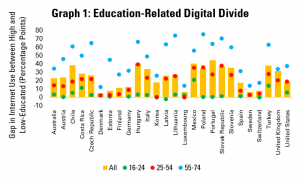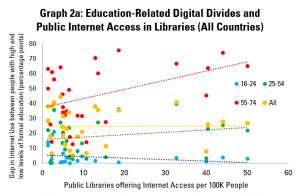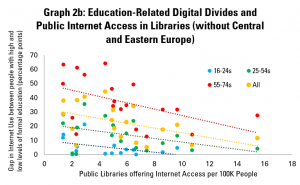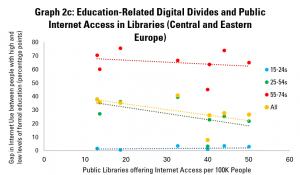In many parts of the world, this week has seen children and students return to school. For some, this will be in person, with all the need for precautions that this brings, and often only for limited periods of time. For others – at least those lucky enough to have a reliable internet connection – learning continues to be fully remote.
Crucial to learning is access to materials. Textbooks and/or wider reading materials play an important role, complementing and supporting the work of teachers themselves.
Young children, for example, benefit from access to children’s books and storytimes. Older ones gain from structured materials and a wide selection of other works which allow them to broaden their horizons. Students need access to research outputs to build their knowledge and skills, as well – in many disciplines and countries – to textbooks.
Without materials, the burden on teachers is higher, and the opportunity to look further, deepening and enriching learning, is narrower.
COVID-19 has posed significant challenges for access to materials. Some of these are linked to infrastructure issues – a lack of decent connectivity. Some are linked to the choices made by producers of materials about how they are distributed. Some are linked to economics – the ability of learners to afford.
None, however, are impossible challenges. With the right will, governments can make changes that will make a difference. They can help ensure that the class of 2020 is not left behind.
The situation will change from country to country, from institution to institution, and even from individual to individual. Some already benefitted from strong connectivity, or laws that ensured that materials can be available digitally for all. Some have acted in the context of the crisis. Others have been less ready to step up.
As part of work to build up an understanding of the challenges faced by libraries in different parts of the world to ensure that the class of 2020 does not have the narrowest access to resources in years, this blog sets out three conditions that every government should arguably be looking to fulfil:
Every learner must be able to access the internet: as UNESCO has highlighted, a third of students risk not returning (or continuing not to attend) school this month. Those facing poverty, and girls, are particularly likely to be affected.
This is not just a question for students in poorer countries. A quarter of households in Los Angeles County in the United States don’t have sufficient internet access for remote learning. Libraries have provided a vital resource here, both through maintaining the possibility to use WiFi in their carparks, as well as supporting longer-range WiFi connections to whole communities.
We look forward to working further to build awareness of what more can be done – by libraries and governments – to realise this potential fully.
Libraries must be able to access – and give access to – all materials on reasonable terms: a second challenge is specific to libraries, who have long had a role in ensuring that people, regardless of their background, can have access to works. It can also make much more sense for people to borrow books than buy them, especially if they are only likely to need a small part of them, or to use them for a short period.
However, in recent years, we have seen moves to restrict the possibility of libraries acquiring books, even though the sorts of uses made by library users do not necessarily clash with sales. For example, the University of Guelph, Canada, has underlined concern about publishers’ refusal to sell textbooks to libraries in anything other than physical form. This is of course useless if library buildings are not open to students.
Similarly, the terms on which access is given can be difficult. There is evidence in some countries of libraries facing high costs (sometimes, seemingly, in order to encourage purchase of package deals instead), or of only being able to offer limited access. We look forward to understanding better the state of availability of books and materials for libraries, and the terms under which this happens.
Clearly, libraries will need to continue to pay to acquire content – as they have always done – but in turn, they should also be able to continue to give access in the most appropriate way possible, as set out in the IFLA CLM principles, or in the letter prepared by Research Libraries UK to the government. This should include adequate protection of student privacy.
Meanwhile, with commitments taken by rightholders in the first months of COVID-19 starting to lapse, governments may well need to think about how to take more meaningful steps – via copyright reform and other market interventions – to ensure that libraries’ ability to provide access to materials into the long term can be based in law, rather than just the (obviously welcome) goodwill of rightholders.
No student should want for necessary materials for financial reasons: finally, and linked to the previous point, there is a pressing need to reflect carefully on how to ensure that individual students are not faced with impossible financial barriers to accessing content.
Clearly, to a large extent, libraries can provide a solution by providing access with the limitations usually associated with lending (limited time, potentially a need to wait for another user to finish). As set out in the above, it is important that this can continue.
Yet there remains an ongoing discussion around the cost of textbooks – either individually or through platforms – and how to overcome this. We look forward to exploring further how to promote affordability of content through libraries.
In the meanwhile, there is a clear potential for more use of open educational resources to bring greater equity, but this in turn requires investment in order to promote quality and discoverability. As a SPARC Europe report has suggested, libraries are already closely involved in realising this potential. Meanwhile, a UNESCO Recommendation on OER, supported by IFLA, already sets out actions that governments should take.
To collect information, IFLA is already surveying members of relevant committees in order to find out about their own experiences. We will also be holding a webinar presenting our Guidelines on Public Internet Access in Libraries on 17 September, setting out the case for providing access, and providing responses to some of the questions that can get in the way.
We look forward to working with our members on these questions!



